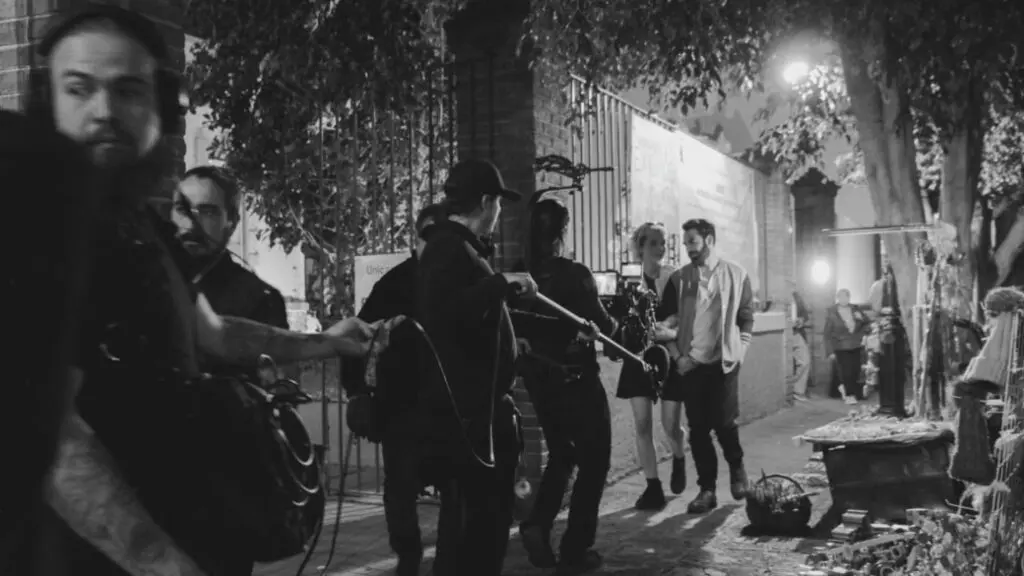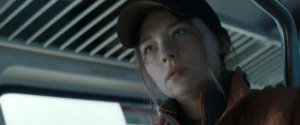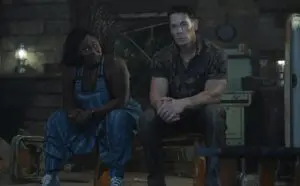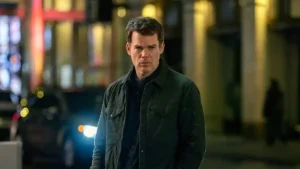As if they need to demonstrate the breadth of tastes Grimmfest caters to, their Easter Horror Nights programme includes a new film from Mexico which at first looks like a gentle romance. Rendez-vous is about two people who met online, so of course, we should know not to take anything at face value. This is a film that both feeds scepticism and rewards it.
I had the pleasure of talking to the film’s writer/director Pablo Olmos Arrayales recently, and after a brief introduction asked him to confirm something I’d heard and been a little sceptical about: was Rendez-vous really shot just once? “Yeah, we couldn’t afford another chance to shoot the movie again, so the movie is the only take we did. We really prepared hard, for three weeks with the actors, and a week with the DP [director of photography] just to plan the whole movie. That was about it: four or five weeks of rehearsals and one chance to make it. We had to pay for the movie, with our own money: a shoestring budget. The idea of just one take came like this: I asked my friends – who are also the producers – if we want to shoot another short film or a feature film, and they all told me ‘let’s shoot a feature film, but how?’ And I told them we can use the same budget but we can only shoot for one single day. I was really naïve: it was much harder than I first thought. So that’s what happened, and why we had the technique before the script. I knew I had only one chance, one take, and then I had to figure out what kind of story would allow me to be a fly on the wall. I thought about a couple having a date and from then on, the story grew.”
I’d seen some of Hitchcock’s tricks to make the single-take technique work in Rope and I asked Pablo if he had discovered tricks of his own. “Well, I don’t know if there is a trick per se. We had members of the crew hidden around the house, such as make-up and effects guys; so at certain points when the camera is downstairs, make-up can enter the main room of the movie and make up the actress. We had to plan where to hide them, so they could get out at just the right moment to do their work. Otherwise, I tried to make it like any regular movie: I wasn’t trying to make one long shot, but have extreme close-ups, my long shots, my medium shots, different kinds of psychological framing. Then when that was worked out, I looked at how to connect all those different frames. We didn’t have to hide a camera like Hitchcock did… and perhaps he wouldn’t have either if he’d had today’s equipment. In his own time, though, he was a master.”
From what Pablo described just now, it sounded as though all the techniques he chose to employ put a lot of pressure on himself: there were objectives to achieve, as well as simply telling a great story. I asked him to tell me what that pressure was like. “Yeah, I tried to press myself to be the kind of filmmaker I like. I knew that if I had a single take, my camera has to be fluid, and I needed the attention of the audience to follow that, so yes, I put a little pressure on myself. But I like it. I think it’s a way that filmmakers should work.”
That sounded like a steep learning curve for one’s first feature: was there anything he regretted about that approach? In the end, did Pablo consider it to all be more effort than it was worth? “Well, I wish I had another day to shoot another take, just to improve some things in certain points of the movie. Otherwise, I knew I only had one chance, the crew knew and the cast knew; so what I told them was we know the movie and the script, and when I say ‘action’ everything that wasn’t part of the film now becomes part of it. There are no mistakes but instead chances to improve the film. So we were really open to whatever happens in the film. There are actually three things which were different from the original script; some small improvisations, which felt really natural.”
So was some of the dialogue improvised? “Everything was in the script, pretty technical and precise. What I’d said to the cast was that I’d give them room to improvise a little, but only in rehearsals. Once we are one week from the shooting date, no more improvisation: we have to memorize what they have come up with, so it goes like clockwork. My work with them was to make it feel natural: they are not improvising the whole time as it may have seemed. Part of my work as a director is to ask them what can they bring to the table: if they have something which lifts the work, it stays; if not, it’s gone.”
Antonio Alcantara and Helena Puig who played the couple certainly seemed very believable. I asked how easy it was to find the perfect pair. “When you’re working in the independent filmmaking world, it’s always hard to go for well-known names. So we look for some familiar Mexican actors and of course, they told us ‘no’. Then I met Antonio about a year before at a short film festival and I liked his demo reel. I met Helena through my producer because she worked with her in a series. When I interviewed her, she was really nervous, had this punk-like haircut; and I said ‘she’s won!’ Suddenly, everything fitted.”
I do love surprises in films, but sometimes they can be far-fetched, too unlikely to believe in. I asked Pablo, as a writer, how he makes something that is both surprising and plausible at the same time. “I don’t know! Perhaps it’s obvious, but I have studied a lot of Hitchcock, and one of the influences was Suspicion. In that film, you cannot be sure whether Cary Grant is a good or bad person, and I tried to mimic that structure. Also, a non-Hitchcock movie that inspires me is Whatever Happened to Baby Jane? All through that movie, you think one of the sisters is a good one and the other is horrible, and then at the end, there’s a big twist. I tried to mimic the classic thriller style, not so much going for modern horror or twisty kind of movies; I could, but prefer to look back at the classics.” I guess they are, after all, classics for a reason; and the influence of Hitchcock was certainly apparent in Rendez-vous.
So were those classics also the reason behind the film being made in black and white? “Oh yes, yes,” said Pablo. “I wanted to have a black and white film in my filmography, just to make a homage to the classic filmmakers that I love: Fritz Lang, Polanski, Kurosawa, and Hitchcock, of course. When I was walking through the first part of the film outside the museum, using a phone camera with the DP, we both had a moment looking at it and noticing that it felt a little like art; and that gave us the courage to keep going.”
As I often do, I had discussed preparing for this interview with my son, nearly fourteen years old. I had described the way it changes tone halfway through, and he had said to me “sounds like From Dusk Till Dawn”; well yes, but without the stripper! Pablo laughed and said “no vampires either! I love that film actually.” My boy had also suggested a question to bring: considering Pablo had moved from making shorts to his first feature, had he learned any lesson in the process about the difference between both? “I have learned not to be afraid: shoot the films, make the best you can, but don’t let fear get in the way. And that was something actually that I got from Robert Rodriguez. When I watched the extra features in his DVDs, he said so many times ‘don’t be afraid, don’t be afraid!’ So that’s now a mantra, which I carried forward into the longer film: if I’m not afraid when I make a short, this can be just the same, except longer. Actually, I shot it in less days than the short films: they were made in two or four days each, not just one. The other thing I learned was to be just surrounded by talented people: film is a very collaborative medium, and you have to be really aware of that. You have your idea of how to manage things and the team around you helps to make it happen. The short films I made were just me and my friends: it’s a real difference.” So the limited budget on Rendez-vous was compensated by the talent of the people around him.
Pablo’s Vimeo catalogue includes some animated pieces, so I asked whether he was planning to do something with that skill. “I know how to direct animation – I don’t do it myself – and I have a short story that I hope to make into a feature one day with stop-motion. So yeah, I really like that kind of technique; also the invisible visual effects, like David Fincher does, a set extension and that kind of stuff. So I would like to do that… when I have money.” Hopefully, the exposure from Rendez-vous will bring in more investment next time.
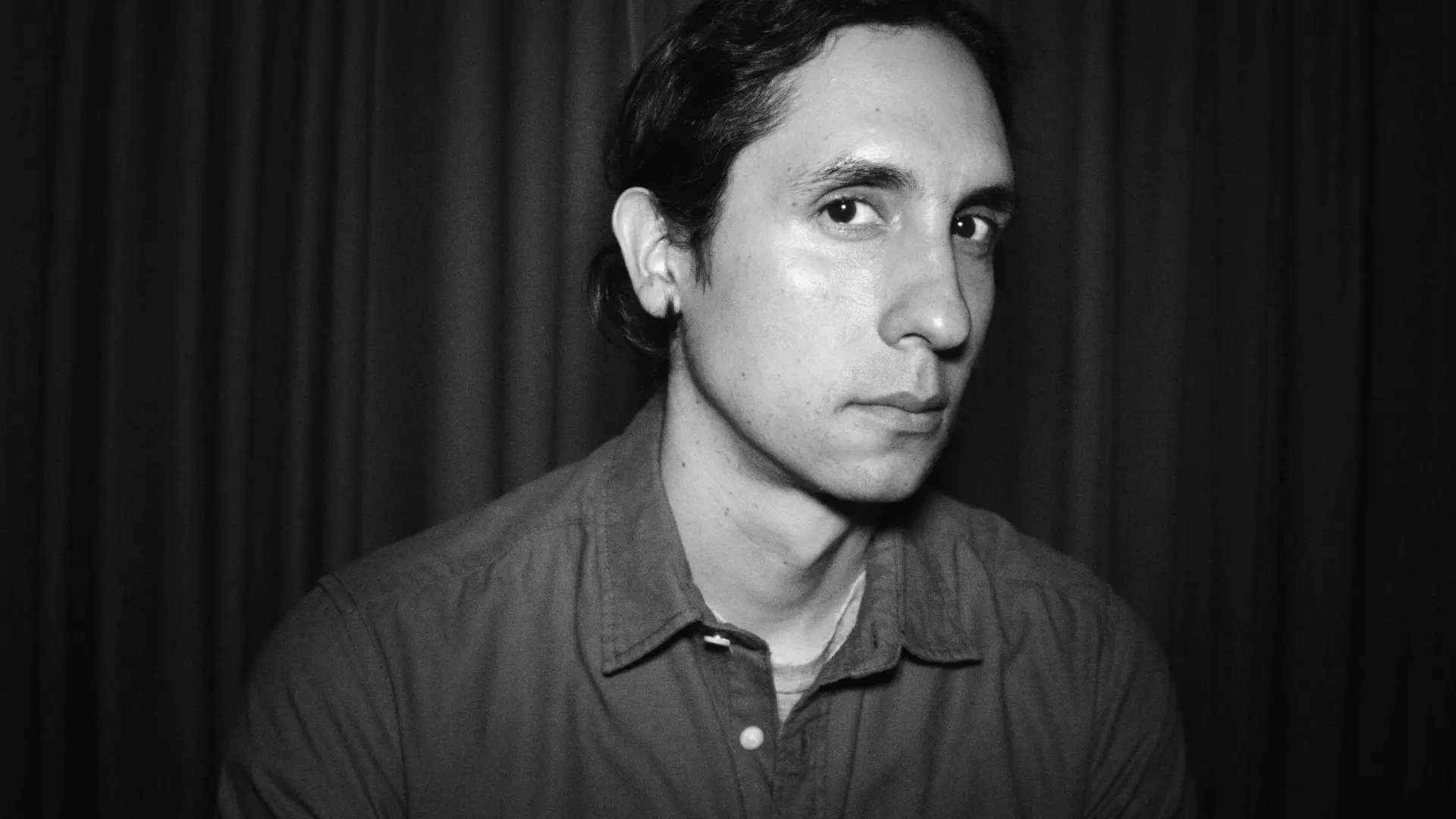
Rendez-vous was fortunately finished about a year ago, so I asked what work had been like after that since the pandemic conditions came to play. “We premiered the movie here in Mexico in December 2019, we won the audience award; then we went to France in the following February, and we won the grand prix there. Then the film was being selected for different festivals around the world, and I was getting ready to travel the globe, but suddenly the pandemic changed things. But one thing I like about the way we’ve all changed is interactions like this interview: movies are available around the world because they’re online, and we can chat on Zoom and so on. I’ve been lucky enough to meet a lot of people like this. There’s a balance: we’re missing traveling, but at least the movie is seen around the world, and we keep meeting people. I’ve been writing a lot; most production shut down, so writing was the natural activity to do instead. Most of my work is in commercials but I didn’t have any work like that since February last year; not just because of the pandemic, but also my mother became sick. But it’s been a hard and joyful year in the life of my movie: I couldn’t be happy because of my mother, but still, the film was a success. Then I lost her to cancer: it was hard for people who didn’t have COVID, but still should have gone to the hospital. So I couldn’t share everything with her, but she had been to the premiere, and to France, so lived a little bit of the movie life. I try to heal myself with writing: thankfully the movie is still playing in festivals, and right now, I’m negotiating for the American remake. So hopefully we’ll get to do that and I’ll still direct it: things are working out.”
It sounded like an interesting prospect, and I asked Pablo whether he’d use the same techniques when making the story again. “Yeah, it’s not official but what they loved was the freshness of the story and the technique. So we’ll do another simple story with no cuts, hopefully I’m hired, and different actors. I’m working on the script now, trying to fit the social commentary to the American setting: it’s very different to Mexico. I don’t want to lose it, so trying to adapt it carefully.”
Back on the topic of Rendez-vous, it was time for my cheeky question: it felt like the film was a lesson against internet dating; did Pablo have some bad experiences? “I actually made the film about that because I’m afraid to make a date on an app or website, so I’ve never had that experience. I wasn’t trying to make a lecture about it, because it might not be online, it could be any regular date: there are psychos everywhere! It just felt like something that everyone is looking at, and if everyone’s doing it, and I’m frightened of it, it gets thrown into the pot.” There are all kinds of ups and downs, no matter how you meet people.
As well as the remake, I had to ask whether there were any new projects on the horizon. “I have been writing a lot and last year we tried to shoot another movie, but couldn’t raise the money. So I wrote a script with just one character: that was what I wanted to try next. It’s important to me to raise the stakes: I’ve made a single-take movie, OK, what can I make to challenge myself? That’s another lesson from this feature film actually: to have very few variables. When there are few variables, you can do it yourself, or ask one company to get involved. This new one isn’t the same genre, but also a thriller.”
So I look forward to seeing what he comes up with next, and we started to wrap up the conversation… then Pablo remembered a couple of things. “Tell your son the film which started the idea of having the genre change partway through was Psycho, because it looks like a heist at first, and then changes; I’m sure you’ll agree. It was a dream of mine to surprise people halfway through like that. And another dream of mine was to do to other people what Spielberg did to me when I saw Jaws: I’m still afraid to go to the beach, and I want to be able to make people afraid. I want people who watch this film to find themselves thinking twice about online dating.”

